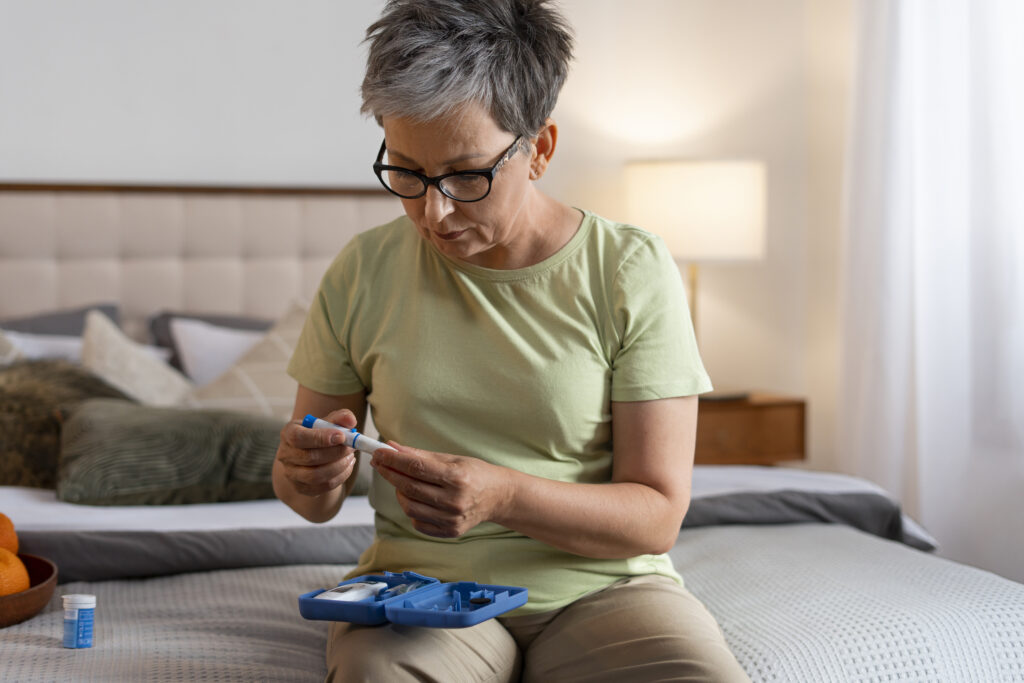
People who donate plasma help many patients fighting immune deficiencies, blood problems and other severe diseases. Clearly, if you are diabetic, you may worry: is it possible for plasma donation to harm me?
For many people, having better controlled blood sugar helps them donate plasma without extra risk. However, you should take some important steps to ensure you donate safely and feel good afterward.
We’ll explain what plasma is all about, who may be eligible to donate, how diabetes affects things and how you can prepare correctly. We will also mention Avant Medical Group’s help for diabetic people in staying healthy.
What Is Plasma and Why Is It Imprtant?
Your blood contains plasma that functions to move proteins, hormones, nutrients and waste materials around your body. It supports the body’s resistance to disease and helps stop bleeding. Plasma is used to make therapies for those with long-lasting diseases and can be essential for combating serious complications.
Plasmapheresis is needed to collect plasma, since it separates out the plasma and puts your red blood cells and platelets back.

Can People with Diabetes Donate Plasma?
Yes—being a donor with diabetes is possible as long as you qualify under the needed criteria. What’s most important is that your diabetes is being well-controlled and you’re generally healthy.
You can likely donate plasma if:
● You manage your blood sugar with either healthy habits, medicine you take by mouth or insulin.
● You are not dealing with kidney disease, serious neuropathy or untreated high blood pressure.
● You don’t have a virus or infection at the moment.
● Your doctor finds you meet the basic age, weight and iron level needed for a blood donation.
The company advises patients to care for their diabetes and see their doctor regularly if they want to remain eligible to donate plasma.
Considerations Before Plasma Donation

Check with your doctor to find out how your body might react before giving plasma if you are taking medicine or insulin. We should be mindful of these things:
● Disclose to the donation center any drugs you’ve taken, in particular insulin and metformin. Even though most scars aren’t a big issue, sharing lets people know you’re safe.
● Until you are stable after recent hypoglycemia, infections, wounds or hospital stays, you should not try to donate blood.
● Check what your blood sugar is before you donate and also measure it afterwards. Your blood sugar may rise or fall, especially if you haven’t eaten well or if you are fasting.
Our specialists and patients share information to help guide the evaluation of health markers and offer tailored suggestions.
Tips to Prepare for Plasma Donation with Diabetes
If you come prepared, your donation will likely be smooth and risk-free. Let’s see what you need to do to prepare for this.
1. Maintain Stable Blood Sugar
With high or low glucose, consider delaying your donation. Check your blood sugar level the evening before your appointment and in the morning as well.
2. Hydrate in Advance
Plasmapheresis removes some of the fluid you have in your body. Try to drink lots of water a full day before your appointment so you are well hydrated.
3. Eat a Balanced Meal
Avoid fasting. Try to have a fiber-, protein- and complex-carbohydrate meal a few hours before donating to keep your glucose levels constant.
4. Avoid Alcohol and Caffeine
They could lead to dehydration or damage blood pressure and those factors are needed for donation.
5. Inform the Donation Staff
Tell the team about your diabetes, the medicines you are currently using and how you’re feeling in general. Because of this, they can offer you more support or pay special attention to you while the procedure is ongoing.
Post-Donation Care
After you donate plasma, you need to give yourself some care.
● Sit at the donation center for about 10–15 minutes and then eat a small meal.
● Keeping yourself hydrated should be a regular throughout the day.
● Check your blood sugar and eat when you need to, to prevent it from falling.
● Do not do heavy chores or strenuous exercises the rest of the day.
Should you notice you are more tired, feel dizzy or continue to have glucose issues, don’t hesitate to see your regular doctor or a diabetes specialist at Avant Medical Group.
How Avant Medical Group Supports Your Health
In our medical group, we customize diabetes care according to your choices, your health objectives and any special medical needs. Our specialist team gives you:
● Testing your blood sugar and using insulin
● Changes in medication and learning more about your condition
● Advice on nutrition and healthy ways to live
● Scientific tests can help catch problems such as neuropathy or risks to the heart
Plasma Genetics gives patients tools and understands important to enable them to live actively and participate in activities like plasma donation.
Frequently Asked Questions (FAQs)
Ans: Not always. Typically, insulin users can donate plasma provided their diabetes is under control and they feel good. Always check with your doctor first.
Ans: It relies on the severity and whether those problems are now active. You could be temporarily postponed until you are stable.
Ans: Some individuals could see their blood sugar drop somewhat. Good planning and observation will help to avoid this.
Ans: Usually every 28 days, you can donate if you meet the eligibility criteria; your health and the center’s regulations will determine.
Ans: Poor sleep the night before, recent illnesses, elevated blood sugar, or just plain fatigue might suggest it is preferable to wait.
Conclusion
People with managed diabetes are allowed to give plasma without risk. Taking the necessary time, keeping in touch with your doctors and getting their advice, plasma donation can be satisfying.
We help you stay healthy and encourage you to feel confident when making these choices. If you aren’t sure whether you are ready for donation, our diabetes team can talk you through it during a consultation. Looking after your health matters to us most and we’ll work together to prepare you to serve safely.
